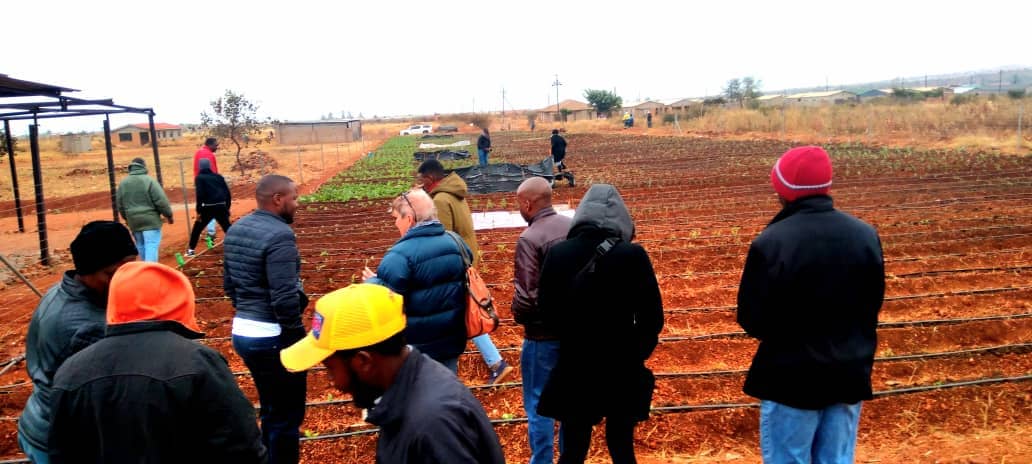UNDP Impressed by Progress at Hlanganani Community Market Garden
- Written by: Tafadzwa Masviba

The Hlanganani Community Market Garden, a Sally Foundation and UNDP partnered project, welcomed a UNDP team and it witnessed firsthand the progress that has been made.
Impressed by what they saw at the site, everyone braved the cold weather to mingle with beneficiaries whilst the ZDDT team explained the layout.
The garden, which is being implemented by ZDDT, has showcased a remarkable level of professionalism and experience, evident from the groundbreaking ceremony to the planting of the first crop, which took only 43 days.
The garden has undoubtedly become a model of excellence in urban agriculture, fully complying with all byelaws and regulations governing urban land use.
The UNDP team had the opportunity to interact with some of the beneficiaries and were excited to hear about the positive impact the garden is already having on their livelihoods.

Access to fresh produce, coupled with increased income generation from selling surplus crops, will transform their lives beyond measure.
The UNDP team emphasized that the Hlanganani Community Market Garden is a prime example of how communities can take an active role in bettering their lives.
The project fosters self-reliance and empowerment, exemplifying the UNDP's commitment to developing sustainable solutions with innovation.
The project has great potential, not only to transform the lives of the beneficiaries but also to revolutionise agriculture in urban areas.
With the introduction of fish farming in phase two of the project, the garden is set to take an innovative approach to urban agriculture.
This addition will provide a new dimension to the project and open up exciting opportunities for the beneficiaries which will include additional protein in the diet.
The remarkable success of the Hlanganani Community Market Garden is proof of the transformative impact of community-driven and owned initiatives.
With the support of the UNDP and Sally Foundation, it is becoming increasingly evident that individuals and communities can overcome challenges and create sustainable solutions for themselves.
The anticipation for phase two of the project highlights the hope and enthusiasm for the future of the garden and the community at large.
